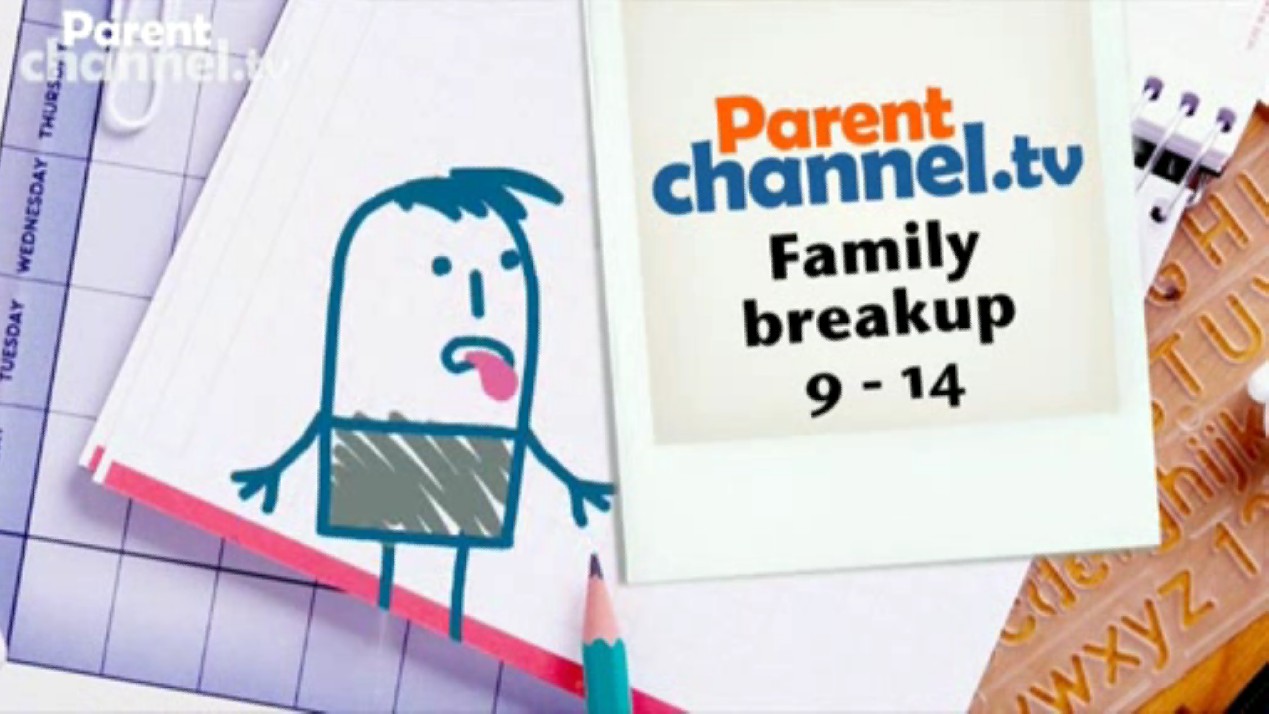 Go to main content
Go to main content
Archive Website of the UK government
Please note that this website has a UK government accesskeys system.
Main menu
Page menu
Video: dealing with family breakup (9 to 14 year olds)
Advice for parents on how to help children cope with divorce and separation.
Can't see the video?

To play this video you need Adobe Flash Player version 9 or higher on your computer and have JavaScript enabled on your browser. Our Help with video files page gives advice if you are unsure how to do this. The Flash software is free.
Text version
Paula Hall, Relate: "I think when dealing with children of this age group, one of the most important things is to make sure you're being honest with them about what 's going on. But honesty does have a limit. It's not important for children to really understand the ins and outs of your relationship and the reasons for the breakdown. But what they do need to know very much is what's actually happening next."
Kirsten Gronning, mother of three: "In my experience with my youngest child, certainly I kept him aware of what was going on. I probably didn't give him quite as much detail as I did the older two. I felt it needed to be age specific and he didn't really need the details."
Paula Hall: "It's really important that you do give your children permission to talk about their feelings. If they're angry, if they're shouting, if they’re sad, if they're wanting time on their own, realise that this may be to do with the divorce and separation. But do allow them some space to talk about that and express it. However difficult it may be for you to hear, it's important that they know it's ok to have those feelings."
Kirsten Gronning: "I made sure it was just emphasised that it was fine for him to feel sad, and that I felt sad as well. I tried not to show it too much because I think that would have been a bit negative for him, but we were allowed to feel sad."
Reassure your child it's not their fault
Paula Hall: "You're still going to be their parent, you may not be partners anymore but you are going to still be their parents and you are going to be putting their needs first."
Kirsten Gronning: "Even though we might be arguing at the moment about how we're divorcing, whether we're even divorcing, how we're splitting the finances, where we're living and so on, we are still always going to be your parents and we will always love you even though we can't live together and we don't love each other any more, we will always love you. Yes, that was very important."
Routines are helpful
Paula Hall: "The reason why routines are so important is that whilst there's a lot of inner turmoil going on, it demonstrates that actually there's still that external structure, so keeping that structure in place really helps them to feel more contained with the emotions that they're having to deal with."
Kirsten Gronning: "I found it was very important to keep the routine and the structure going, to make sure that the things that were important to them - i.e. friends, time at school, timekeeping, meal times, bedtimes, all those sorts of things - we kept to them."
Don't force your child to take sides
Paula Hall: "Evidence has shown that the two things that affect a child most in divorce and separation are where there’s conflict between parents and where there’s difficulty in having contact, regular good contact with one of the parents. So it's absolutely essential that you make sure your child can see both parents on a regular basis and also that you're not putting your partner down or placing blame at one person's door."
Useful tips:
- give your child space to talk
- keep routines in place
- tell your child they're still loved